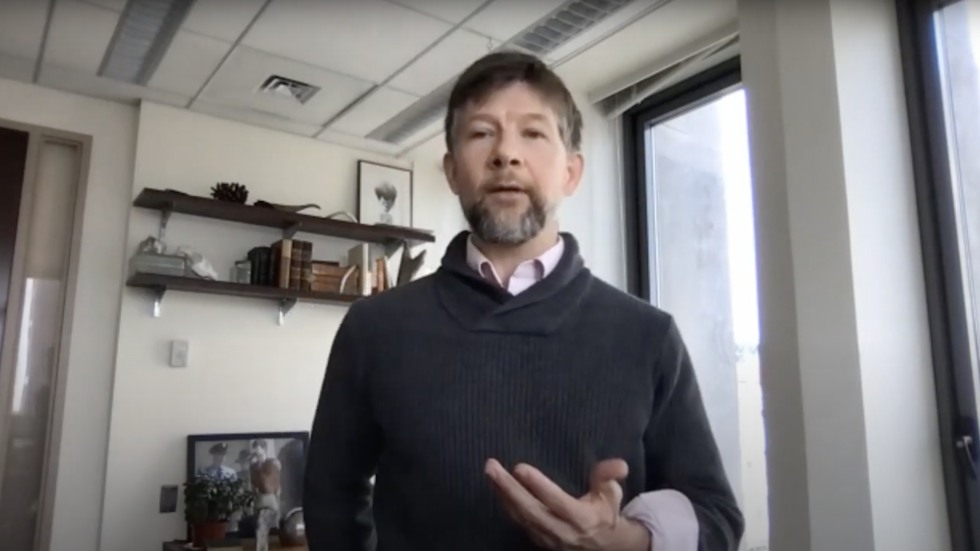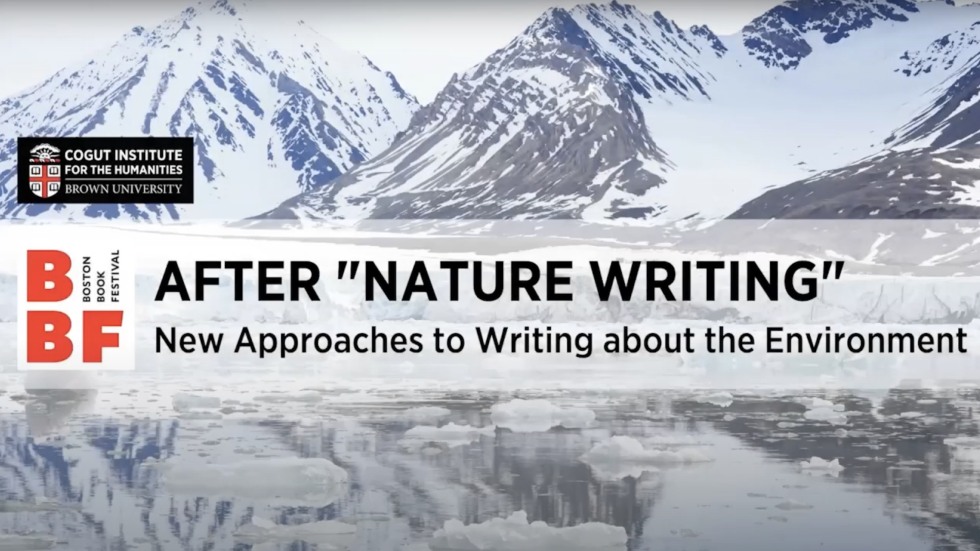The initiative for Environmental Humanities at Brown hosted four public events during 2021–22. The first, a showcase of research by faculty and students connected to EHAB, invited the ongoing participation of the Brown academic community.
The second two events, both held in the late fall, featured prominent environmental humanities authors. The Boston Book Fair partnered on “After ‘Nature Writing,’” which brought together five authors to imagine new alternatives to writing about nature that break free of the dominant narratives of resource conservation. Then in “Is Climate Democracy Possible?” legal scholar and cultural commentator Jedediah Purdy argued that the climate crisis could be solved only by addressing the crisis of democracy simultaneously. Recordings of both events are available to watch on YouTube.
The last event of the year was also the first EHAB program to be held in person and brought author Carolyn Finney to campus for a hybrid presentation and performance titled “The N Word: Nature, Revisited (An Imagined Conversation with John Muir) — A Work-in-Progress.” Through a blend of autobiography, family history, and cultural criticism, Finney explored the complex relationship between the natural world and race.
Throughout the year, the EHAB reading group also discussed a variety of themes: fungi and oceans in the fall and, in the spring, topics intersecting with contemporary social issues, including disability, colonialism, migration, and afrofuturism.

